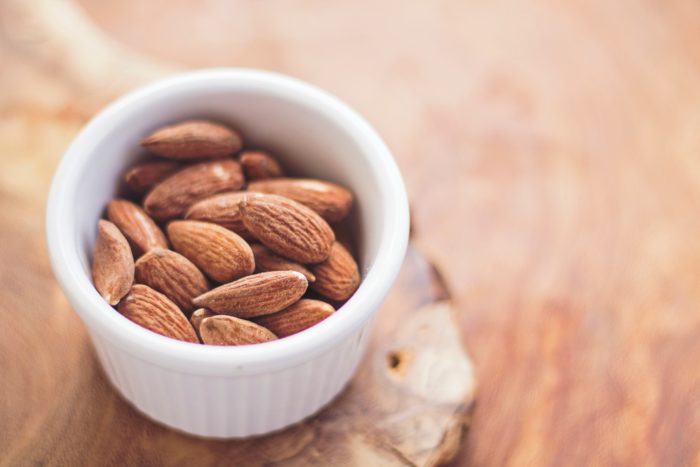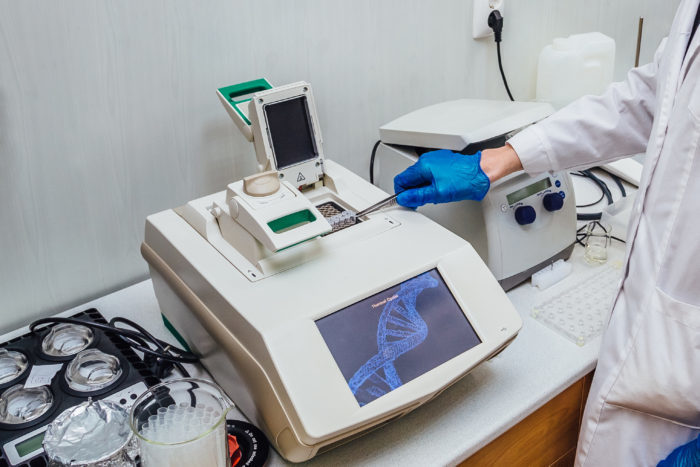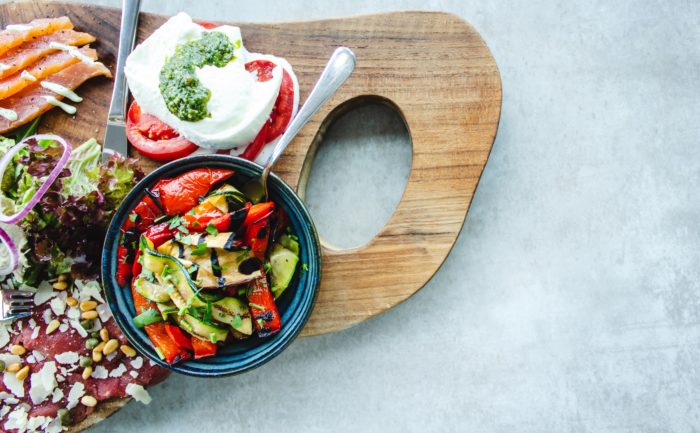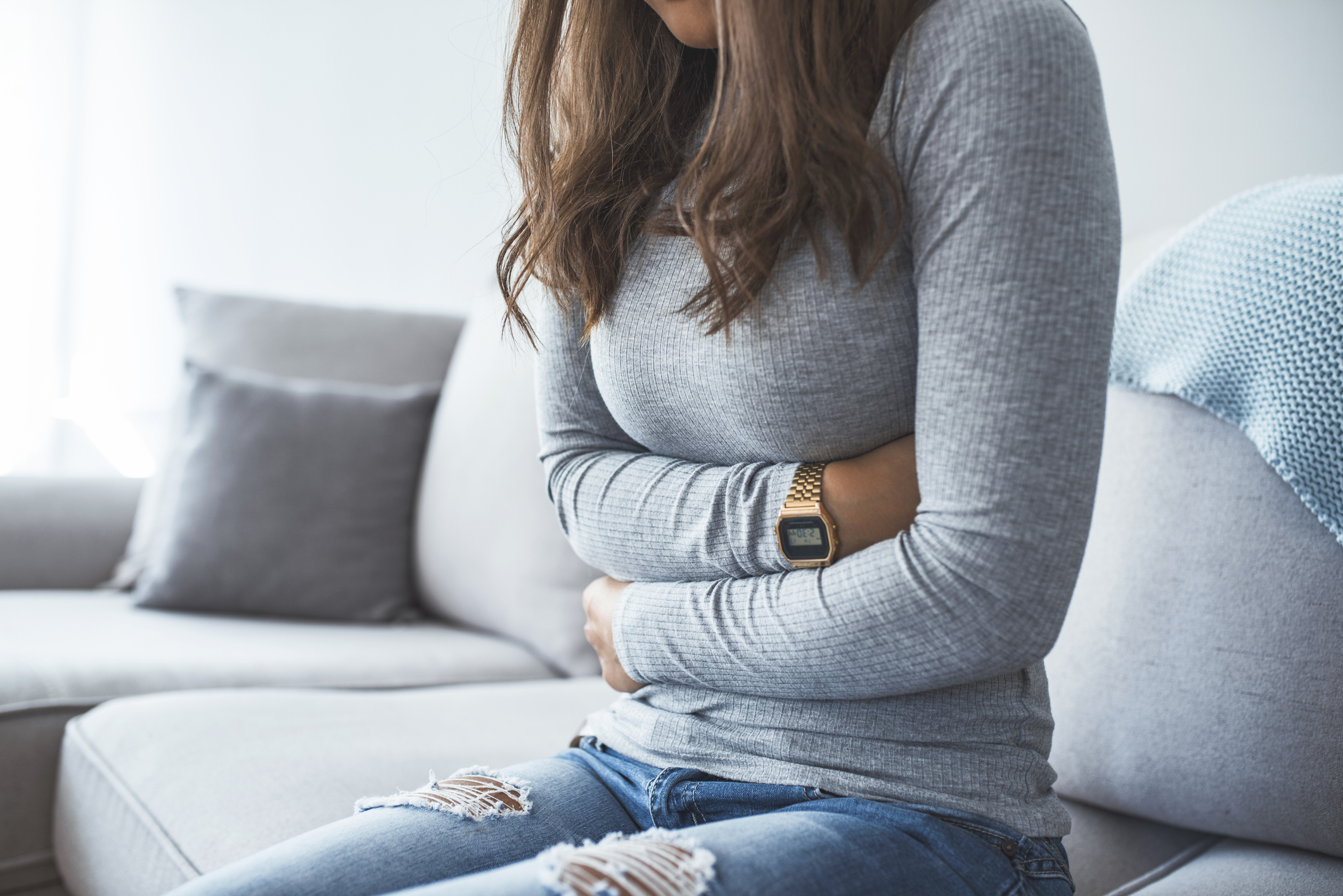Keep reading to learn all about the causes of gut inflammation, common symptoms, and tips for reducing that inflammation and feeling your best.
Inflammation isn’t always a bad thing. Some inflammation is healthy and is a necessary part of life.
But when inflammation becomes chronic – especially in the gut – it can become harmful.
Learning ways to reduce chronic gut inflammation can make a huge difference in your overall health and wellbeing.
Inflammation is responsible for many chronic diseases. And with today’s stress-filled modern lifestyles, we’ve unfortunately seen an uptick in chronic inflammation, especially in the gut.
Gut inflammation may not be obvious. But it’s often a root cause of many digestive, and even non-digestive, health issues.
Gut health is behind the health of many other body systems. The health of our gut influences everything from our mood, how well we sleep, our weight, and susceptibility to develop other diseases.
Reducing gut inflammation can seem like a daunting task. We’re often bombarded with supplement plans and quick fixes that promise to reduce gut inflammation and solve our health problems.
But in reality, there are simple diet and lifestyle shifts you can start making today. These shifts can help set you up for a lifetime of healthy inflammation response and better gut health.
Making these simple changes can help you achieve a life of eating with minimal food restrictions or digestive complaints. You’ll be one step closer to living and eating fearlessly with a healthy, happy gut!

Not All Inflammation is Bad
Inflammation is often thought of as the source of all health issues. When in reality, acute inflammation is a very necessary part of life.
Acute inflammation is the body’s natural response to tissue and cell damage.
It’s a protective process that helps the body maintain homeostasis and balance. Without some level of inflammation, our body would never be able to heal and recover.
Without inflammation, we wouldn’t be able to fight off pathogens, foreign bodies, or injuries to tissue or cells. And if inflammation didn’t exist, we wouldn’t be able to recover or train our muscles from exercise. We need a healthy inflammatory response to manage these acute stressors.
Inflammation does become a problem, however, when it doesn’t turn off when the acute stressor is gone.
When inflammation is always present somewhere in the body, it turns from an acute occurrence to a chronic one.
This chronic inflammation puts your body in a state of constant high alert. When your body is constantly inflamed, other processes like digestion and hormone creation take a back seat.
However, chronic inflammation typically isn’t a diagnosis in itself. It serves as a marker that can point us to something else that’s going wrong in the body.
Anything from stress, improper dietary choices, or an unhealthy microbiome can be a cause of chronic inflammation. In these cases, inflammation can actually be a useful tool in diagnosing and treating other health conditions.
Chronic inflammation can be controlled using diet and lifestyle changes. And you can start making those changes while getting to the root of why you’re chronically inflamed in the first place.
Chronic inflammation should be viewed as a tool to help you gain better health, not something to stress over.
The inflammation is simply a signal to you that your body is out of balance. And once you figure out exactly what it’s trying to tell you, you’re on your way to resolving that inflammation and living in vibrant health!

Common Symptoms of Gut Inflammation
Gut inflammation can be difficult to pinpoint. The symptoms of having an inflamed gut very closely mimic the symptoms of many other gut disorders.
And usually, when your gut is inflamed, you’ll have other gut conditions tagging along. In this case, the inflammation alone won’t be the source of all your symptoms.
Getting to the root of why you’re experiencing gut inflammation and the associated symptoms is the best way to start feeling, and digesting, better in the long run.
Here are some common symptoms of gut inflammation:
- Food sensitivities
- Brain fog
- Skin problems
- Non-specific digestive issues (gas, bloating, change in bowel habits, etc.)
This is definitely not an all-inclusive list. Symptoms of gut inflammation are hard to pin down, and gut inflammation can rarely be diagnosed by symptoms alone.
Further evaluation and testing is often necessary to determine if inflammation is an underlying factor for you.

Underlying Causes of Gut Inflammation
Gut inflammation doesn’t just appear out of nowhere. There are often underlying reasons why your gut is inflamed in the first place.
While there can be many root causes behind gut inflammation, here are some of the most common that I’ve seen with my clients and women in my free Facebook community.

Intestinal Permeability
Intestinal permeability, or “leaky gut,” occurs when the junctions that hold the cells of your intestinal wall lose their connectivity. Essentially, the gut lining becomes loose and leaky.
This damage to the intestinal lining can enable things like undigested food particles, bacterial byproducts, and toxins in your gut to escape into the bloodstream.
Having a leaky gut can eventually lead to inflammation. And this inflammation can show up, not only in your gut but also in other areas of your body.
Gut inflammation is also one of the main causes of “leaky gut”. This bi-directional relationship makes it easy to get stuck in a vicious cycle of intestinal permeability and gut inflammation.
There are several key ways to improve your intestinal health and reduce gut inflammation.
Both physiological and emotional stressors have been shown to cause intestinal permeability.
These physical stressors could be anything from too much intense exercise, eating a diet that doesn’t work for you, or just eating too few calories.
And emotional stressors like a difficult job, juggling too many tasks at home, or staying in a toxic relationship can all play a role in your gut health as well.
Working to reduce these stressors in your life can help you get out of the leaky gut-inflammation cycle for good.

Microbiome Imbalances
Imbalances in your gut microbiome, the friendly bacteria that live in your intestines, is another factor that can cause gut inflammation.
A gut imbalance could come in the form of something like SIBO (Small Intestinal Bacterial Overgrowth), a decrease in beneficial bacteria, or a pathogenic overgrowth. And it’s likely you’ll experience gut inflammation along with it.
Under normal circumstances, our gut bacteria help us to properly digest our food, regulate our bowel movements, and protect our gut from invaders.
But our gut bacteria can actually become a source of gut inflammation when the microbiome is imbalanced.
When our gut is home to the wrong types of bacteria, or there aren’t enough good bacteria present, we can start to develop some of the symptoms of gut inflammation.
Some bacteria produce what is known as lipopolysaccharides (LPS). LPS is an endotoxin that can trigger an inflammatory response in the gut.
And if your gut becomes leaky due to this LPS-induced inflammation, you can experience system-wide inflammation as well.
But don’t worry, microbiome imbalances and the associated gut inflammation can be reversed.
Getting on a high-quality probiotic, eating lots of fermented food, and reducing your stress can help to rebalance your microbiome and reduce the levels of LPS in your gut.

Histamine Intolerance
Your body produces chemicals called histamines in response to allergens. Common allergens that produce a histamine response are things like pollen or pet hair.
But certain foods can also cause a histamine response in your body.
Most histamine responses are a normal part of a healthy, balanced immune system. But problems can start to occur when there is a dysfunction in the enzymes that break down those histamines.
When this happens, too many histamines build up in your system, and you experience symptoms of what’s known as histamine intolerance.
One of the main roles of histamine in the body is to increase inflammation. This inflammation serves as a red flag to your immune system that there’s something your body is reacting too.
And when this allergen comes in the form of food, this inflammatory response can occur in your gut, leading to gut inflammation and an increase in symptoms.
If you think histamine intolerance could be causing your gut inflammation, try reducing your intake of histamine-heavy foods like bone broth, fermented foods, cured meats, and dried fruits. (These foods are incredibly common on the Paleo diet, which is why some people experience worse health when they make the switch!)
Reducing your exposure to these foods can help lower your overall histamine load and your inflammation levels. This can help with symptom management while you work to uncover the root cause of your histamine intolerance.

Autoimmune Disease
Autoimmune disease can occur when a genetically susceptible individual experiences an event that triggers the immune system to start attacking its own body, not just a foreign invader.
Would you like to save this post?
Your email address is 100% safe and will never be sent spam.
Many autoimmune diseases have ties to gut health and gut inflammation. Celiac Disease, Crohn’s Disease, and Ulcerative Colitis are all autoimmune digestive disorders that can result in chronic gut inflammation.
In these conditions, the immune system attacks some or all of the GI tract. This attack can result in malabsorption of nutrients, anemia, abdominal pain, a change in bowel habits, and inflammation.
In fact, inflammation is one of the tell-tale signs of autoimmune disease. And this is why following inflammation-reducing diets like the Autoimmune Paleo Protocol is so helpful in reducing symptoms and controlling these diseases.
If you think you might have one of these inflammatory gut conditions, it’s important to schedule an appointment with your Gastroenterologist for testing.

Food Allergies or Sensitivities
Food allergies and food sensitivities aren’t the same things (read more about the differences here). But both conditions can be a potential cause of gut inflammation.
True food allergies elicit a direct immune response. This immune response increases antibodies and inherently creates inflammation, especially in the gut.
Food sensitivities, on the other hand, don’t set off an immune response directly. But they can come about as a result of a leaky gut. In this case, undigested food particles escape your intestines and cause an inflammatory response in your body.
Your body views these undigested food particles as invaders and mounts an immune response against them. This immune response creates inflammation and produces antibodies, resulting in food sensitivity symptoms.
Then, the next time you eat this food your body has mounted an attack against, you’re more likely to experience that same inflammatory response.
If you are suffering from food sensitivities, your gut won’t stay inflamed forever. Avoiding your trigger foods while you work on dialing-in any underlying gut infections, stress, and digestion issues can help make gut inflammation and food sensitivities a thing of the past.

Eating a Standard American Diet
It’s no secret that the Standard American Diet (SAD) isn’t the healthiest way to fuel your body.
Americans are now consuming fewer vegetables and more processed foods than ever before. This way of eating has led to increases in diabetes, cardiovascular disease, and obesity. But the hidden effects these dietary trends are having on our gut inflammation is startling as well.
The SAD diet consists of foods that are often genetically modified (meaning they’re exposed to lots of pesticides) and have low fiber and high salt content. And it’s been shown that these foods are some of the main contributors of diet-induced gut inflammation.
Studies also show that the SAD diet causes changes in our gut bacteria. SAD dieter’s microbiomes tend to shift towards species that actually cause inflammation in our gut, rather than help reduce it.
Don’t take this the wrong way. Eating a few processed foods or sugars here and there isn’t going to inflame your gut. The point is not to be paranoid, but to be mindful of frequency when it comes to these processed foods.
Eating these foods as a majority of your diet for years and years, without a healthy balance of real, unprocessed foods is what can take a toll on your health. Working to make the majority of your diet whole, unprocessed foods is a major first step towards a healthier gut.
If you do think your diet is contributing to gut inflammation, you can start to make a change today!
You don’t need to completely overhaul your diet all at once to begin seeing improvements in your health. Try first switching out inflammatory oils (soybean, canola, vegetable, etc.) for healthy fats like avocado oil, coconut oil, or lard. Next you can work on increasing the diversity of fruits and vegetables in your diet, while decreasing processed snack foods.
These small changes can make way for larger improvements over time. And you’ll likely start to see improvements in your health and inflammation levels just by altering your diet alone.

Testing for Gut Inflammation
Understanding what causes gut inflammation and how to spot it can be useful.
But, really the only way to know if gut inflammation is an issue for you is to test. And, in my humble opinion, the best way to test for gut inflammation is by using functional stool testing.
Stool testing is not a fun experience. I’ve done it before myself, and it’s definitely awkward to be digging around in your own poo! But testing your gut gives you so much valuable information about what’s going on and how to start fixing it.
In my clinical practice, I use the GI-MAP Stool Test. This test measures Calprotectin levels in your stool sample; the clinical ngold-standard for evaluating gut inflammation.
High levels of Calprotectin indicate that there are more white blood cells than normal in your gut lining.
This marker is valuable in measuring gut inflammation. But we still have to dig deeper to figure out why these levels are elevated in the first place.
If you’re interested in testing for gut inflammation using a GI-MAP test, click here to schedule a strategy session with me. We can work together to find the root cause of your gut inflammation and get you feeling like yourself again!

Tips to Reduce Gut Inflammation
There are some simple diet and lifestyle shifts that you can start making today to help reduce gut inflammation.
These tips can not only help reduce inflammation but are also effective strategies to include in your daily life for overall health and wellbeing.

Include Probiotics
Including probiotics in your diet, either through food or supplements, is a great way to start tackling gut inflammation.
Healthy gut bacteria are protective against some of the main causes of inflammation. They serve as a line of defense against pathogenic invaders and help boost the immune system in your gut and the rest of your body.
Probiotic supplements are great, but they can also sometimes be expensive and unnecessary. Many people can benefit by simply increasing their intake of raw, fermented foods every day.
These probiotic-containing foods are things like sauerkraut, kimchi, yogurt, or kombucha. You’ll likely find the ones with live-active cultures in the refrigerated section of local health food stores.

Eat a real Food Diet
Styles of eating that focus heavily on the consumption of real, whole, and unprocessed foods help reduce diet-initiated inflammation.
Plant foods contain high levels of anti-inflammatory compounds like carotenoids and flavonoids. These powerful compounds help to modulate the immune system and can actually assist our body in its natural immune response.
Healthy fats that are high in Omega-3 fatty acids, found in fatty fish and grass-fed meats, are also very helpful when it comes to combating inflammation.
Real, unprocessed foods can help combat inflammation, which is why we should aim for the bulk of our food to come from whole food sources. But that doesn’t mean you should never indulge in the occasional processed food or sugary dessert.
Balance is key when it comes to eating in a way that will be both nourishing to your body and your mind.

Reduce Your Stress Levels
Both mental and physical stressors can affect your gut health due to a connection known as the gut-brain axis.
Stress, in any form, can be a big factor behind chronic, unexplained, gut inflammation.
Chronic stress increases cortisol levels, which in turn increases inflammation. It’s not uncommon to see gut symptoms flare up during or after a stressful event.
And these events that are stressful for your body aren’t necessarily what you’d think of when you think of stress.
Even an overly intense workout or not eating for an extended period of time can be viewed by your body as a stressor. It’s important to listen to your body’s signals when it comes to potential physical and mental stressors, and not push yourself beyond your body’s limits.

Test for Gut Imbalances
Bacterial imbalances and the lipopolysaccharides these unhealthy bacteria produce can be an underlying cause of your gut inflammation.
If you think this is the case for you, the best way to identify what’s in your gut is to do a functional stool test.
These functional stool tests use bacterial DNA and other markers to get a general snapshot of what’s in your gut and how it could be contributing to your health.
I use the GI-MAP stool test with my clients. I find it to be the most accurate and useful for identifying most problem areas in the gut. And this test can help us come up with a game plan to resolve them.
If you’re interested in using the GI-MAP test to get to the root of your gut inflammation, sign up for a strategy session with me, here.
What You Should Do if You Think Your Gut is Inflamed
Often times, inflammation and the root causes behind it all occur in a vicious cycle. By breaking this cycle, you’re able to find healing from chronic gut inflammation and the associated symptoms.
And the best way to do this is to team up with a practitioner who is knowledgeable of gut health and the root causes of gut inflammation.
Dietary and lifestyle interventions can certainly improve your symptoms and begin to reduce some of your gut inflammation. But if there’s an underlying factor that’s keeping you inflamed, discovering and eliminating that is going to be the only way to fully improve your gut for good.
I’d love to partner with you to determine if gut inflammation is behind your stubborn symptoms. If it is, I have the skills and experience to help create a plan to eliminate your inflammation and help you live your most vibrant, fulfilling life!
Click here to get started on your journey to healing with schedule a strategy session with me.
Do you suspect that gut inflammation could be behind some of your symptoms? Have you tried any of these diet and lifestyle tips here to help reduce your inflammation? Are there any tips that you would add?
Share your thoughts in the comments below!
This post may contain affiliate links. If you click on a link and make a purchase, I may receive a small commission.

+ show Comments
- Hide Comments
add a comment